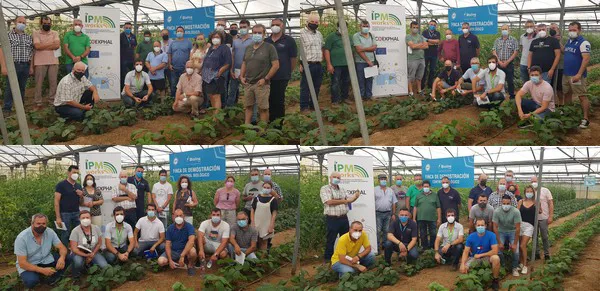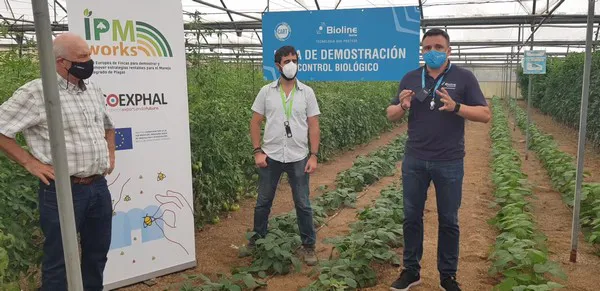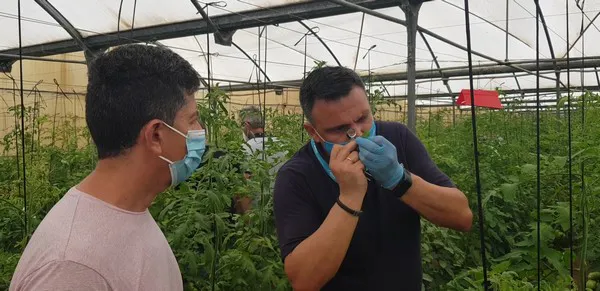The Production Techniques Department of Coexphal has recently organized another demonstration day within the framework of the European project H2020 IPMWorks, and with the collaboration of Bioline Iberia and Única Group. It has taken place in the experimental farm that this cooperative has in the area of Las Palmerillas. After monitoring the crop from the beginning, and now that the results are clear, Coexphal and Bioline technicians have explained the strategy implemented.
On this occasion, sixty agricultural producers and technicians from various cooperatives of Unica have had the chance to see in a greenhouse how the biological control against Tuta absoluta in tomato plants has been carried out.

Attendees were divided into four groups in order to enforce the required security measures against Covid. They were then given a tour, during which they had the chance to see how various biological control tools had been implemented and what their effects were on tomato plants badly affected by virosis.
Jan van der Blom, head of the Department of Production Techniques of Coexphal, said that these kinds of events are very important to showcase biological control experiences and make it possible for attendees to see the behavior of auxiliary insects against pests, in this case, against Tuta absoluta.

Manuel Gómez, head of R&D at Bioline Iberia, outlined the company's strategy to the attendees and explained to them how to implement the protocols chronologically for effective pest management. Firstly, Nesidiocoris is released in seedbeds to allow the predator to settle easily. Then sexual confusion diffusers are used, and lastly, the Trichogramma, a parasitoid of Tuta eggs, is also released, in addition to horizontal plate stations near the ground to control the populations. Predatory mites, the Amblyseius andersoni, were also introduced to test their effectiveness against Vasates.
Before agricultural producers and technicians entered the facilities, Eduardo Crisol, of Coexphal, who's the person responsible for the implementation of IPMWorks on the farms, talked about the small parasitoid wasp Necremnus tutae. It isn't marketed, but it enters spontaneously and seeks the Tuta larvae, which it then paralyzes by stinging them, placing an egg next to them. Its life cycle then continues on the leaves until it becomes an adult, hence the importance of keeping an eye on the galleries and monitoring as Bioline Iberia has done in the Única farm.

Lastly, agricultural producers and technicians toured the farm with magnifying glasses in hand to check the effectiveness of the protocols and biological control tools against Tuta absoluta in tomato plants.

For more information:
Coexphal
www.coexphal.es
www.ipmworks.net
